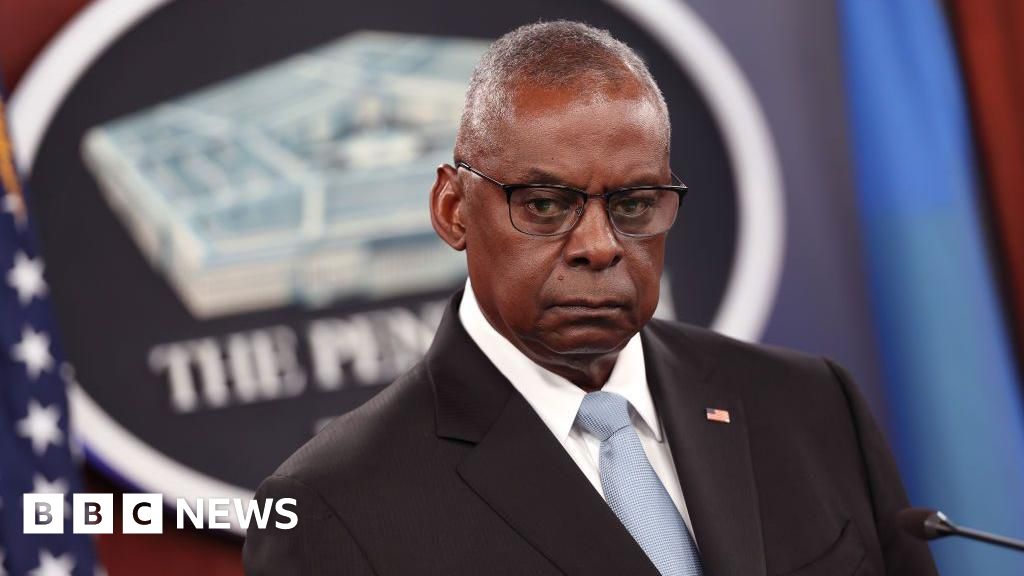US Defence Secretary Lloyd Austin underwent a medical procedure and temporarily transferred power to his deputy, the Pentagon has said.
The procedure was elective, non-surgical, and is not related to his cancer diagnosis.
Mr Austin, 70, was diagnosed with prostate cancer late last year.
He was criticised for failing to disclose previous hospital stays in December and January.
In a statement on Friday night, Pentagon press secretary Maj Gen Pat Ryder said Mr Austin handed over powers during a “successful, elective, and minimally invasive” procedure.
The defence secretary is still dealing with bladder issues that arose from his cancer treatment.
The elective procedure had “no effect on his excellent cancer prognosis”, Maj Gen Ryder said.
Mr Austin briefly transferred his duties to Deputy Secretary of Defense Kathleen Hicks on Friday evening while he was treated at Walter Reed National Military Medical Center.
Maj Gen Ryder said earlier on Friday that the White House and Congress had also been notified.
Mr Austin had previously apologised for failing to disclose earlier hospital stays, which drew criticism from Republicans and Democrats alike over concerns about transparency and security.
Republican Representative Mike Rogers, chairman of the House Armed Services Committee, said at the time that “it’s totally unacceptable that it took three days to inform the president of the United States that the secretary of defense was in the hospital and not in control of the Pentagon”.
The defence secretary is just below the president in the chain of command for the US military and is regarded as one of the most important members of the cabinet.
Three separate investigations were launched as a result of the disclosure failure.
Mr Austin also testified before Congress in late February over the incident, and took responsibility for the blunder.
“I should have promptly informed the president, my team, Congress, and the American people about my cancer diagnosis and subsequent treatment,” he told lawmakers.
“We did not handle this right. And I did not handle it right.”

